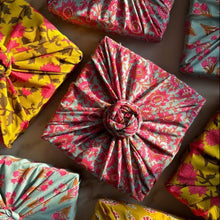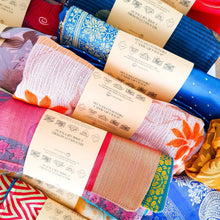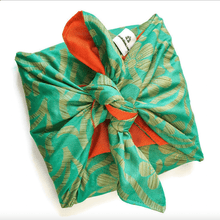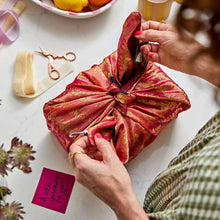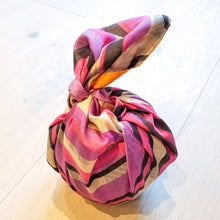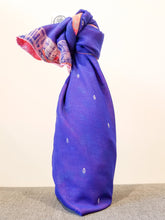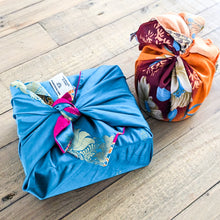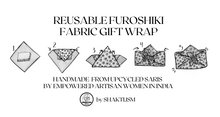
Begin your zero-waste journey with one of Shakti.ism’s large reversible sari gift wrapping cloths, each one lovingly made by an empowered artisan woman in India.
These eco-friendly alternatives to paper gift wrap are handmade using repurposed saris. Re-use your cloth over and over again! They’re brilliant for wrapping just about everything, including odd-shaped gifts (balls, wine bottles, anything!). They’re good for the environment, made entirely of 100% recycled reclaimed sari fabric, and you can save trees by not using paper gift wrap. They’re also gorgeous and any gift recipient would love to receive one. These unique fabric cloths are so lovely that you’ll want to keep one for yourself!
You’ll receive 1 unique sari gift wrapping cloth with this purchase. Each cloth is made from 2 different saris (one on each side), so you have 2 different gift wrap designs to choose from. The cloths are made from upcycled sari fabric, so colours and patterns will vary. You may or may not get one of the sari cloths shown in the images. Some finished items have minor imperfections or markings, which makes them even more charming and distinctive.
Sari gift wrapping cloths are gifts that keep on giving; they can be reused again and again as gift wrap. Larger cloths can be used as neck scarves or bandanas.
*COLOURS AND PATTERNS WILL VARY AS EACH ITEM IS MADE FROM UPCYCLED SARI FABRIC - PHOTOS SHOWN ARE EXAMPLES*
Dimensions:
- Small gift wrapping clothes are approx. 35cm x 35cm (approx 15in x 15in)
- Medium gift wrapping cloths are square and approx. 45cm x 45cm each (approx 18in x 18in)
- Large gift wrapping cloths are square and approx. 60cm x 60cm each (approx 24in x 24in)
- Extra large gift wrapping cloths are square and approx. 75cm X 75cm (approx. 30in X 3in)
Care. Gently hand wash in cold water. Hang or lay flat to air dry.
By purchasing this item, you are helping to empower and provide ongoing employment income for the women who make these handmade products. The demand for Shakti.ism’s products provides these women with dignified employment, a living wage, hope and opportunities for their children. Together we can provide alternative options for disadvantaged women with the aim to lift them out of poverty and help them to become self-sustaining and independent.








